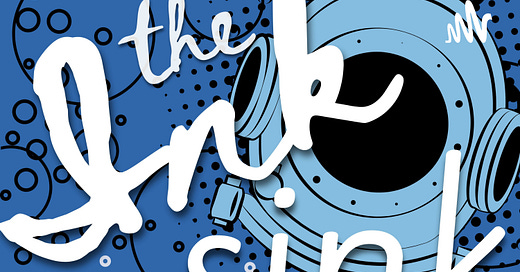You can’t really Google what we’re talking about today. Well, you can try. But if you put “book packaging” into your search bar, you’re going to get something entirely different.
To set the stage, we are NOT talking about:
Bookbinding
Moving books from one location to another
Preserving books during transit
Protective dust jackets
So, what is this episode about?
Book packaging thrives when the company has an idea from a marketer that they can engage one or more authors on. The authors then connect the dots, move from an outline of plot points, and hit one or two character beats.
Consider some of these popular series from book packagers:
Two of a Kind (a spinoff of Annie’s favorite Mary-Kate and Ashley TV show when she was seven) (40 books)
Sweet Valley High (143 books)
Gossip Girl (18 books)
Nancy Drew (175 books)
Baby-Sitters Club (131 books)
Hardy Boys (190 books)
The companies behind these massive series workshopped the plots for their audiences and then hired writers to write the novels.
Some of the early books explicitly tried to create plots that matched up with covers that evoked adult mystery or romance novels, taking advantage of the participatory yearnings of youth.
Who wrote them? In some cases, we have no idea! Many of these books are ghostwritten or written by teams of people who never appear on the byline.
Yes, the Goosebumps series was written by more than one person. (Despite what R.L. Stine will tell you.)
Anyway. The first company known to engage in the modern concept of book packaging in the United States was Chanticleer Press, headed by Venice-born Paul Steiner.
Steiner published Chanticleer’s first book in 1907, and quickly grew the business from there. He eventually broke away from his British parent company and ran his own publishing house based on his innovations.
Another huge name in the game at this time was the Stratemeyer Syndicate, which made a splash in the world of fiction. Just consider: Nancy Drew and The Hardy Boys were each started in the 1920s by Stratemeyer.
You can find other book packagers through the American Book Producers Association, but neither of the original big two will be present. Chanticleer Press is now owned by Penguin Random House, and the Stratemeyer Syndicate was bought up by Simon & Schuster.
(We take a brief diversion here where Kali forgets James Patterson’s name despite his incredibly prolific and lucrative participation in ghostwriting and book packaging. Those books aren’t her preferred genre, and her brain seems to have refused to retain any information. As she tried to describe him to Annie: he wrote the spy-man series! But fascinatingly, James Patterson runs his own in-house packaging operation for his IPs. And it has made him a lot of money! Good for you, James. Not Kali’s thing, but fly your flag.)
Does this mean that every book series comes from a book packager? No.
Famously, many traditional authors are simply extremely prolific. Think of people like Brandon Sanderson, Stephen King, and Diane Duane. As far as we know, none of these authors operate as book packagers.
There are also publishing companies that ride the line between book packaging and traditional publishing. They are usually adapting IP from non-book franchises into book form.
Think of things like:
Star Trek
World of Warcraft
Dungeons & Dragons
Star Wars
Magic: The Gathering
But Kali and Annie both find the book packaging industry fascinating, and they’ll be diving deep into it today.
How the Literary Sausage Gets Printed (As Nobody Says)
Assume you’re a CEO who wants to be paid and make your shareholders happy. You’ve got an established IP with a known footprint and built-in market. What do you do?
Well, if you’re a book packaging firm, you turn to Hollywood!
Basically, you workshop an outline with character points and story beats that you’re reasonably certain will have a good audience. Then, you work with freelancers (maybe get a few sample pages to confirm they’re working in the right direction) and get a contract on the books for a novel. If this sounds like a writers’ room at a Hollywood studio, that’s because it’s almost exactly the same. Turns out, the silver screen was smarter than you thought!
Voila!
Book packaging is prevalent in genres where the market wants a relatively straightforward story that follows certain formulas. Think of things like:
Kids beating adults and being awesome! Somehow crossing the country to unravel mysteries without adults or IDs! (Looking at you, Mary-Kate and Ashley.)
Action heroes avenging their family and/or saving the President! Bombs! Airplanes!
A city girl inherits her uncle’s farm and needs help from a ruggedly handsome, damaged farmhand to save it…from the corrupt…tax collector??? (Look, you know exactly what I mean, here.)
That isn’t to say that other genres don’t see this and don’t have formulas; they do, and they definitely do. But a successful book packager is going to spend the least amount of money for the base product, so the least complicated plots are going to be the ones with the highest profit.
What’s the Downside?
An author in the industry goes deep into the bad parts in this piece in Medium by Sabaa Tabir. The gist: Predatory contract horror stories are in every creative industry for a reason. (Kali recommends authors get an agent to help avoid this issue, though that has its own cost.)
So, what does that mean?
Book packaging writing jobs are gigs. The gig economy is reliant on contracts. You’re operating on a one-off labor contract to provide a service, trusting that the effort will be compensated equitably.
Unfortunately, when you’re getting started in any freelance industry, you don’t just automatically know who the bad-faith actors are or what good terms look like, and you can be preyed upon. This is what happened to 17-year-old Kaavya Viswanathan, who entered a contract with a book packager that then pressured her to finish quickly so intensely that she ultimately resorted to plagiarism to get the publishing house to back off.
You can listen to this Missing Pages podcast for more on her story, or read an archived International Herald Tribune article about the scandal.
Another downside that we found through a funny anecdote: You don’t know who your test audience will be. As a prospective author for a book packager, John Barlow wrote up 20 test pages that he knew were intended for a “youth” audience, but perhaps he didn’t know how young. So, his material had some naughty words that made the test reader, the company president’s eight-year-old son, cry. Oops?
Needless to say, he didn’t get the final contract.
Downside Continued: Haters Be Hatin’
Gatekeepers exist, and they continue to be the worst. They sit in their little troll caves and shout that comfort content iSn’T aRt.
We disagree. Packaged books can be meaningful and moving.
Here’s the thing: A lot of the content generated by book packagers is intended to…
Make money.
Be enjoyed by young people.
What are the two things that trolls on the internet hate? Other people making money and young people finding joy.
We’re gonna move on from this topic because we don’t feel like giving these people any more oxygen.
A final downside that dovetails with this: in the future, after AI is further incorporated to write these books, we could see a massive fall in quality. This will affect new authors who use packagers to break into the industry and make connections.
Our AI episode goes into that last point in more detail, so we won’t go deep here.
What If I Want to Learn More?
If you search for “book packaging,” be prepared to get a lot of results about physically moving books from one location to another! Packages and shipping are everyone’s favorite topic that nobody is tired of hearing about, right? (RIP Evergiven. Deep sympathies, Madrid Bridge.)
Another more interesting set of results to distract you from your original query will be on hand-binding books. (You know, the packaging you hold when reading a book.) Kali found this to be a very tempting rabbit hole and may have lost a few hours down it.
Be prepared for your targeted ads to become very focused on different sizes of cardboard boxes. (You’re welcome?)
But if you actually want to hear more about the book packaging industry, you can listen to this interview with Matt Baehr about the anniversary of the American Book Producers Association and the relationships book packagers share with traditional publishing firms.
Final Thoughts from Your Hosts
We, generally (as a species) and specifically (on The Ink Sink), have not and probably will not ever agree on a definition for “art.” Suck it up and stop gatekeeping.
And staff your editorial departments!











Share this post